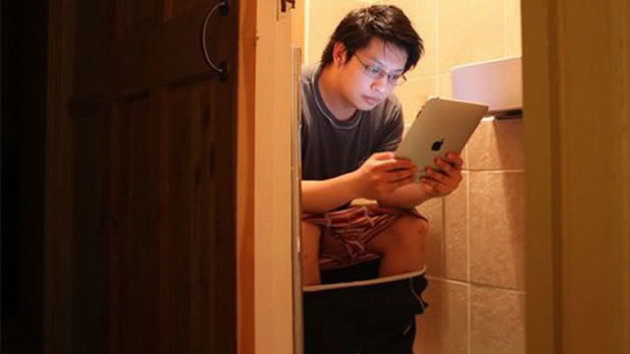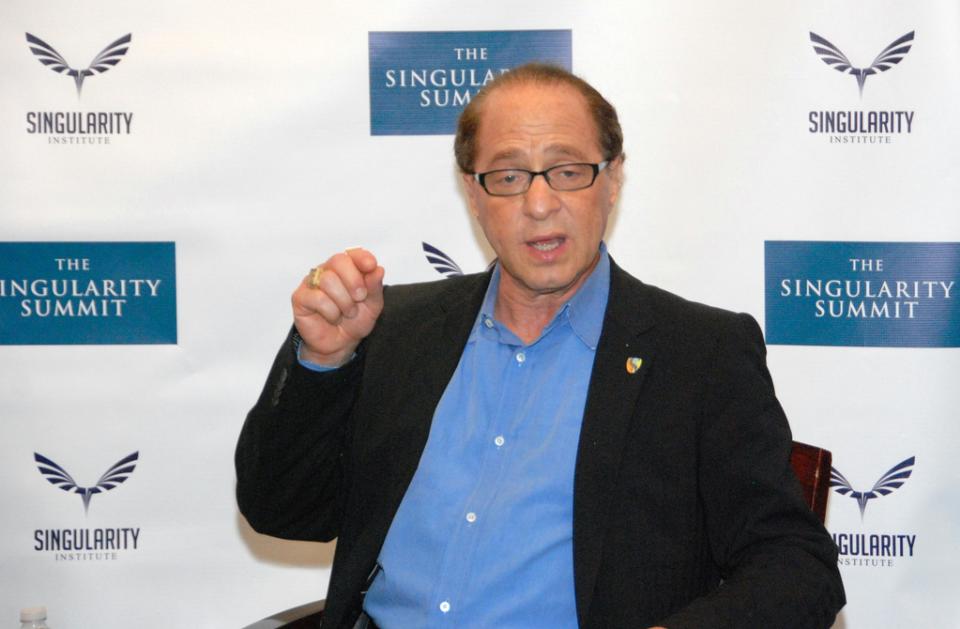I love Chromebooks. I’ve used them as my primary laptop since last year when Samsung released their exynos powered Macbook Air lookalike.

When I bought my first Chromebook it was an experiment. At first, I was nervous about not having
Microsoft MSFT +0.11% Word because I’m an academic. Could I survive with just
Google GOOG +13.8% Docs? When not blogging, I write stuff with footnotes, quotes and complex grammar. Unlike most people, I actually do use a lot of the specialized features in Word. So, when I made the switch to ChromeOS, I kept my old
Apple AAPL +0.87% laptop hooked up as a desktop–huge monitor, external keyboard, and the magic trackpad.
Now, I use that computer only about once every few weeks. Turns out almost everything I do on a normal basis can be done in a browser.
When Google and HP announced the Chomebook 11 last week, I ordered one immediately. It was the micro USB charger that convinced me. Carrying around just one charger for every device is a kind of emancipation.
When the HP Chromebook arrived, I was immediately struck by the packaging. There’s a story in it. This box isn’t just for shipping. It also begins a relationship. Like a proposal, or an engagement, the packaging asks me to commit to this machine. The white curves mimic the aesthetic of the computer. I was excited for the slick plastic curves before I had even seen the real thing.
The corner-less cardboard box is also reminiscent of a giant pill capsule. It reminds me of The Matrix. By being a consumer of this Chromebook I’m crossing a threshold into the Cloud–away from the tangible, material reality of physical memory and into an ethereal, virtual, and untethered experience.
There’s a mythology of freedom that surrounds Chromebooks. We’re freed from the burden of bloatware, freed from the long wait of the typical start-up time, freed from updates and upgrades, freed from the data back-up anxiety, freed from troubleshooting.
Then, on the other side, we’re reminded that the liberty of the cloud comes with the internet’s shackles. I’m reminded of Randy Newman’s great song, “
Rednecks”–I’m free to be put in a cage. Like most computing products, each new sovereignty comes with a flipside. When I sign into this Chromebook, my data becomes available to Google. No more privacy. All the immunity that comes with anonymity is gone.
Oddly, the internet is the only place I can think of where being caught in a web is considered a good thing–where a net promises freedom more than it signals imminent capture.
Imagery like this manifests out of the collective unconscious with intention. There’s meaning behind it. It is not just a superficial accident. There’s a reason we didn’t name this new networked reality the World Wide Tapestry. The cloud is not just an intertwining. A network is not a braid. Not knitting. Not crocheting. Not intermingling.
On the contrary, nets and the webs are technologies of prey. The only freedom is the predator’s ability to capture and feed. Devouring spiders and patient fishermen reign here. They bait their spoils with aesthetics, beauty, and perhaps the promise of a tasty worm.
What’s most thought-provoking, however, is that we’re not fooled. We are all aware of the dangers. And yet, we jump in willingly. We are excited to see how reality looks on the other side of this transition. What will it mean when the privacy of personal identity–the individual self as we know it–is devoured completely? We want to know, and so we let ourselves be caught.
In this case, we’re lured in by shiny new hardware.
The HP Chromebook 11 is hot temptation. The attractive smooth white case feels good to touch. I keep discovering myself rubbing the sides while I’m reading blogs. I’m fondling it, petting it. It just feels good.
The glossy screen is pure pleasure to look at. They say that this particular IPS display is not as high resolution as the one on the Pixel Chromebook, but honestly, it is stimulating enough.
As promised, the sound is both rich and crisp. Much stronger than any of the other Chromebooks.
The trackpad is just as responsive as the Samsung’s. And the keyboard is feels slightly better; there’s a little more spring in these chiclets.
From a sensory standpoint, this HP Chromebook trumps all the other cheap ones. In terms of performance, the HP Chromebook 11 struggles when I have too many browser windows opened. But that seems true of all the budget Chromebooks. I haven’t tried the Pixel, but I’ve used the Samsung, the
Acer , and the Lenovo Thinkpad.

Among all the options I have tried, the Lenovo Thinkpad X131e Chromebook for
education has the best performance. That’s not surprising, it has a Thinkpad keyboard, Trackpoint nipple navigation, and a better processor than all the others. However, it is also big and heavy because it is built ruggedly for schools–“to withstand enthusiastic typing, bustling group work, and everyday school adventures.” I use it at home when I’m more or less stationary. I wouldn’t want to carry it around in my messenger bag. It is just not built for mobility beyond classroom use. The X131e is not designed for consumers, it is only available to institutions. Still, I fantasize that one day Lenovo will build a thin X series Thinkpad Chromebook for everyday use. I’d pay a premium price for it quicker than I’d buy the Pixel.
For now, the HP Chromebook 11 is my everywhere computer. It is cheap enough that I can throw it in a bag and travel without worrying that it might be damaged.
I bought the one with green trim. It is pretty. It is light. It does everything I need.
 A few months ago an 18 year old kid from England, sold his app for 40 million dollars to Yahoo. Which makes me ask: How many young people do you know that have projects like his? Creating a website? Starting their own blog? Creating an app? (this 12 year old did). Online staffing firm oDesk.com recently surveyed their users on their views of being an employee in the workplace.
A few months ago an 18 year old kid from England, sold his app for 40 million dollars to Yahoo. Which makes me ask: How many young people do you know that have projects like his? Creating a website? Starting their own blog? Creating an app? (this 12 year old did). Online staffing firm oDesk.com recently surveyed their users on their views of being an employee in the workplace. Teenager Sells App For $40 Million And Why You Should Care
Teenager Sells App For $40 Million And Why You Should Care
 As we’ve noted before,
As we’ve noted before, 











